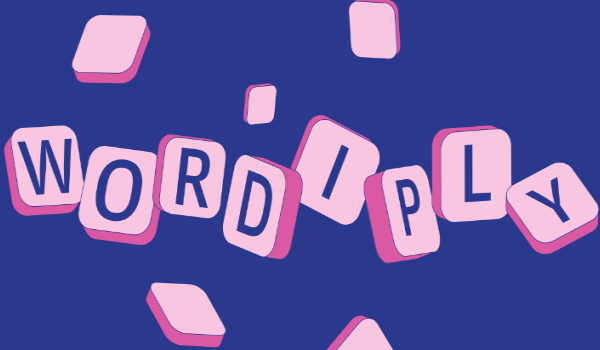Introduction
In a world dominated by fast entertainment and flashy apps, there’s something refreshingly captivating about simple yet intellectually stimulating word games. Enter Wordiply, a unique word puzzle game that has taken language lovers and casual gamers by storm. Unlike typical word searches or crossword puzzles, Wordiply adds a fresh twist that challenges your vocabulary depth and cognitive flexibility.
Whether you’re a seasoned linguist or someone just looking to pass time more productively, Wordiply offers a fun, brain-teasing escape. Its rising popularity isn’t just because it’s a game—it’s because it cultivates thinking, encourages exploration of words, and offers that addictive “just one more round” appeal.
In this comprehensive article, we’ll examine what Wordiply is, how it works, tips to improve your gameplay, and why it’s earning its place among top word games globally.
What Is Wordiply?
Wordiply is a daily word game where players are given a base word or segment, and the challenge is to form the longest real word that includes that segment. Unlike Wordle, which restricts players to 5-letter words and deductive logic, Wordiply emphasizes vocabulary expansion and linguistic creativity.
Players are not just looking for any word—they’re aiming for the longest valid English word that contains the given root, suffix, or prefix. It’s simple in concept but surprisingly challenging in execution.
How Wordiply Works
Here’s a breakdown of how a typical round of Wordiply functions:
-
You are provided with a base string (e.g., “geo”).
-
Your task is to think of the longest word that contains that string (e.g., “geographical”).
-
The longer the word and the more obscure it is, the better your score.
-
Players can only submit real dictionary-verified words.
-
You get only one chance per day, encouraging daily participation and thoughtful consideration.
This format promotes exploration of the English language and gives you a chance to revisit rarely used words or learn new ones every day.
The Appeal of Wordiply
What makes Wordiply so engaging is its blend of simplicity and challenge. Here’s why people keep coming back:
Mental Stimulation
Wordiply pushes players to think critically and search through their mental dictionary, making it a great cognitive workout.
Educational Value
Teachers and educators often recommend games like Wordiply for vocabulary building. It’s a fun method of learning new words without feeling like you’re studying.
Social Competition
Players often share their answers or compare scores with friends, adding a layer of light-hearted competition and camaraderie.
Minimalist Interface
The game boasts a distraction-free interface that keeps the focus on the puzzle itself rather than flashy visuals or ads.
Tips and Strategies to Improve Wordiply Gameplay
If you want to level up your Wordiply game, here are some strategies to keep in mind:
1. Read Widely
The more words you know, the better you’ll perform. Reading books, articles, and even scientific texts can introduce you to longer, less common words.
2. Break Words Down
Think about prefixes and suffixes. If the given segment is “act,” consider variations like “interaction,” “reactivation,” or “mischaracterization.”
3. Use Word Roots
Understanding Latin or Greek roots can help in quickly forming longer words. For example, “bio” might lead you to “biotechnological.”
4. Write Down Possibilities
Some players find it useful to jot down partial ideas and build on them. Starting with a basic word and modifying it with affixes can reveal creative answers.
5. Stay Consistent
Like any skill, vocabulary grows with consistent effort. Make Wordiply part of your daily routine.
The Benefits of Playing Wordiply
While it’s fun, Wordiply also comes with numerous cognitive and emotional benefits:
-
Improved Vocabulary: Daily exposure to new words enhances your lexicon naturally.
-
Enhanced Focus: Solving the daily challenge helps train your brain to focus.
-
Stress Relief: Engaging in such games provides a mindful escape from everyday worries.
-
Social Engagement: Sharing answers or debating word legitimacy creates interaction with others who enjoy language.
Wordiply vs. Other Word Games
Compared to Wordle, Boggle, or Scrabble, Wordiply stands out for its emphasis on length and root integration. It’s not about guessing quickly but thinking deeply. This makes it more appealing to those who enjoy slower-paced, thought-driven challenges.
Wordle may test your pattern recognition, and Scrabble may test your scoring tactics, but Wordiply demands a different type of intelligence—lexical fluency and word retention.
Wordiply and Language Learning
Wordiply isn’t just for native English speakers. It’s also a fantastic tool for people learning English as a second language. It encourages:
-
Spelling accuracy
-
Awareness of complex word structures
-
Confidence in using longer vocabulary
For language learners, the exposure to real, high-level words is invaluable, especially when supported with definitions and examples after gameplay.
Common Challenges Faced by Players
Despite its benefits, Wordiply can be frustrating for beginners or non-native speakers. The game’s restriction to one word per day might feel limiting, especially when players feel they could have done better.
Also, the limited feedback in terms of why certain words are invalid can discourage new users. However, these frustrations are part of what keeps users returning—they want to do better next time.
Wordiply for Families and Classrooms
Because of its simplicity and educational value, Wordiply is an excellent game for group settings. Families can bond over it, teachers can use it in classrooms, and students can build stronger vocabulary skills without rote memorization.
Creating a mini Wordiply competition among classmates or friends can transform the learning experience into an exciting intellectual exercise.

Frequently Asked Questions (FAQs)
What is Wordiply?
Wordiply is a word puzzle game that challenges players to find the longest valid English word containing a specific string of letters.
How often can I play Wordiply?
Players can submit one answer per day. A new puzzle is released every 24 hours.
Is Wordiply free to play?
Yes, Wordiply is completely free to play and accessible to anyone with an internet connection.
Can I play Wordiply on mobile?
Yes, Wordiply is optimized for both desktop and mobile browsers.
How is scoring calculated in Wordiply?
Scoring is generally based on the length of the word and whether it’s obscure or less common.
Is Wordiply suitable for children?
Absolutely. Wordiply is child-friendly and can help improve vocabulary, spelling, and cognitive thinking in a fun and engaging way.
Can I use the same word as someone else?
Yes, but the goal is to find the longest word possible. Duplicate answers are allowed, but unique ones offer bragging rights.
Does Wordiply provide definitions?
Yes, after submission, the game usually provides definitions for learning and context.
How is Wordiply different from Wordle?
Wordle focuses on guessing a five-letter word with limited attempts. Wordiply emphasizes forming the longest word that contains a specific string.
Can Wordiply be used for ESL education?
Yes, many educators recommend Wordiply as a tool for English language learners to boost vocabulary and comprehension.
Conclusion
Wordiply is more than just a passing trend in the world of word games. It’s a mental exercise, a learning opportunity, and a daily ritual for thousands of players. Whether you’re aiming to sharpen your vocabulary, beat your personal best, or just enjoy five minutes of thoughtful gameplay, Wordiply is a perfect companion.
Its minimalist design, daily challenge format, and vocabulary-building benefits make it one of the most intellectually enriching games in today’s digital landscape. If you haven’t tried it yet, now is the time to jump in and challenge yourself with the daily puzzle. You might just walk away a little smarter—and a lot more addicted.
















